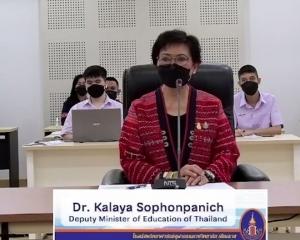Pressure on the Ministry of Education to operate in a "constrained fiscal environment" is likely to be eased by the disposal of several Dunedin schools that have been closed for the past two years.
Tomahawk, Waldronville and Corstorphine schools are nearing the end of the ministry's five-step process for the disposal of Crown-owned property.
A Ministry of Education spokeswoman said the process was largely determined by the requirements of the Public Works Act 1981, which required surplus property to be offered to other government departments, previous property owners and local iwi, before being placed on the open real-estate market.
Schools to have been closed in Dunedin since 2008 are Ocean View School (July 2008), Waldronville School (April 2010), Tomahawk School (April 2010), Corstorphine School (July 2010), St Patrick's School, Dunedin (November 2010), High Street School (February 2011) and Forbury School (December 2011).
Ocean View School was sold on the open market in June 2010, and Tomahawk School was under offer to Ngai Tahu and due for settlement on February 28, she said.
Waldronville School and Corstorphine School were at the offer-back stage.
A formal offer back was subject to Land Information New Zealand approval and expected to be made by the end of April this year.
High Street School and Forbury School were also in the offer-back process, and details about their past ownership were being collated. However, it was too early to determine the offer-back obligations, she said.
Catholic Education Office director Tony Hanning said St Patrick's School was privately owned by the Roman Catholic Diocese of Dunedin and was for sale on the open market.
Ministry of Education properties can take between 16 and 38 months to sell, depending on disposal complexities such as subdivision, multiple titles (requiring amalgamation or separate offer-backs) and Maori land claims involving disputed or collective ownership, often requiring Maori Land Court decisions.
A Ministry of Education spokeswoman said profits from the sale of surplus school property would offset some of the costs of the ministry's capital budget.
"It reduces the requirement for new capital. But any money from the sale of surplus school property is a very small proportion of our annual capital requirements," she said.
Process
The five steps in the disposal of schools. -
• Transfer the property to another government department, or territorial local authority, if required for another public work.
• Offer the property back to the previous owner (or their beneficial successors).
• If the property forms part of a deed of settlement, the iwi concerned has first right of refusal. If they do not exercise that right, the property is placed on the open market.
• If the property is not subject to a deed of settlement, it is assessed for any other related Treaty of Waitangi claims under the Māori Protection Mechanism or the Sites of Significance process. If any claim is successful, the property can be land-banked and purchased by the Office of Treaty Settlements for Treaty claims.
• If the property is not land-banked, it is placed on the open market.











